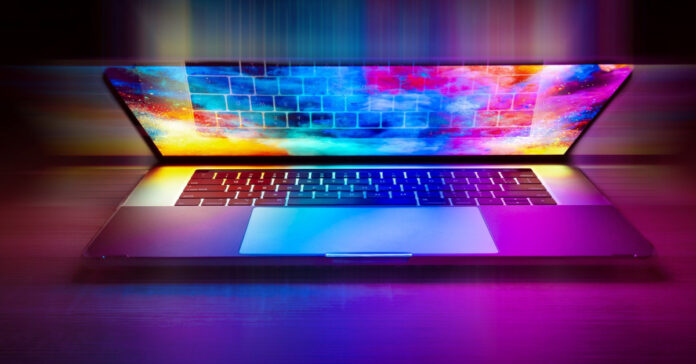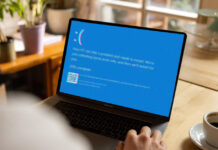News broke on some news outlets this weekend via the Durham investigation implies people apparently working for the Clinton Campaign mined internet data from Trump Tower, Trump’s Central Park West apartment building, and the White House after he was elected. Those are some serious allegations of wrongdoing.
Here is a related video:
I’m not writing to express my outrage that they were spying on the president or about the huge cover up the mainstream media. Instead, I want you to stop and think what this means: If they can spy on the president, how easy is it to spy on you? Is some government agency tracking your metadata? Do they have the name of every website you ever visited, and the contents of every search you conducted? Maybe their computers are reading every email you send, looking for keywords? Do they know what you shop for online?
People far more expert than I have written about online security, but here are a few basic tips I use. Consider using some of these to help you preserve your privacy. There is no reason to make things easy for someone gathering information on you. Whether they are private industry, advertisers, governments, hackers, an ex, or just troublemakers, you should make it as difficult as possible to have your online activities tracked.
Increase Your Online Security
- At the very least, use a VPN and change servers/countries/cities a couple times a day. Don’t get a free VPN, but pay the few dollars they charge a month to be secure.
- I use four different browsers, and I change VPN connections every time I close one and open a new one. One is reserved for banking and personal business. I also check my personal Gmail on it. This is my official email. Then I have alter egos that use different browsers. I use Chromium (note, this is not Chrome) for all my prepping-related surfing and anything I think might be politically incorrect. I keep this browser and all my files on a thumb drive and I set it up not to save anything on my PCs hard drive.
- Websites track you by your IP address (which the VPN addresses), your operating system, and your browser, among other things. Changing these up will give their automated systems a tough time known who you are.
- If a website asks permission to use cookies, deny it. Then delete your cookies every week, just in case. Use the incognito or privacy window of your browser to avoid getting too many cookies. Also delete your browsing history and related content.
- Don’t save bookmarks in the browser. Copy the URL and save it in a text document using NotePad. Then save the document on your thumb drive. When you want to go to a website, search the text file, copy and paste the URL into a new window in your browser.
- Don’t login to sites but surf as a guest. If they insist, then have a few throwaway email addresses and create multiple sign-ins. Use one for prepping, one for gun-related stuff, and one when you want to check for recipes. For example, I have three YouTube logins. One is for beekeeping and homesteading. I’ll let you guess at the other two.
- Don’t login anywhere using your Google mail or your Facebook ID. This is just asking for them to collate data on you.
- Use Google as little as possible. After you use Gmail, log out and close your browser. I would say the same goes for Outlook and Bing.
- Take Facebook and other social media platforms off your phone because they will use it to track your movements.
- Use a utility to erase empty sectors of your hard drive or, better yet, encrypt the contents of your hard drive.
- I store confidential files on an Aeigis Secure Key thumb drive. These are expensive, but highly secure. These use 256-bit AES encryption and you have to physically enter a PIN code up to 16 digits to allow your computer to access the contents of the drive. No key logger or other malicious code will be able to capture this password. Don’t store confidential data I the cloud. Cloud services get hacked all the time.
- If you do anything online where you want the maximum privacy and deniability, set your PC or Mac to boot from the thumb drive and boot up a copy of Tails. Tails is a portable operating system based on GNU/Linux designed to protect you from surveillance and censorship. It uses the TOR network and leaves no trace on your computer.
- Never, ever surf a website that your employers might consider politically incorrect or inappropriate from work or using work equipment. Don’t send personal emails from work. Your employee handbook probably lays out the specifics, but they own the computers, the network cabling, and the routers. That gives them the right to track and read everything you do online from or via their equipment. I would not even send a tweet from my phone using the office Wi-Fi.
Present a Smiling Face
You never know what you are doing today that might be frowned upon tomorrow. For that reason, it is a good idea to make it difficult to tie your identity to anything a political party, law enforcement agency, employer, or big tech company might one day consider a reason to cancel you, fire you, or arrest you.
My suggestion is to have a benign Internet presence in which you do normal things like pay your bills, shop on Amazon, look up movie times, book travel, email your relatives, watch funny cat videos, etc. If anyone investigates you, they should find this information and think, “Darn, nothing to see here.”
Then have a couple alter egos with different email addresses and accounts. Assign each alter ego, a browser and a VPN city, and try hard to avoid overlap. Keep these on a thumb drive that you DO NOT leave it in your computer where it is easily accessible. (Consider encrypting the thumb drive.) Each alter ego surfs and comments on a different area. This way, you won’t look up militias on the same account you use to read your Gmail.
Being safe applies not just to your physical person but to your online identify. Prepare in cyberspace as well as in reality.








